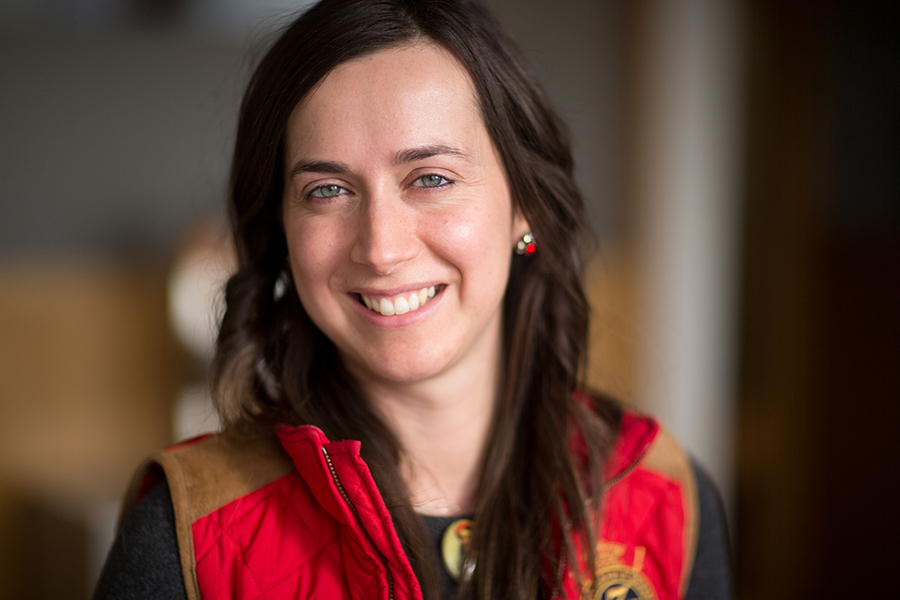
3 Questions: International collaborations in a shifting geopolitical climate
“We offer colleagues an aerial view of the Institute’s best practices and greatest challenges when it comes to successfully implementing projects on the ground outside the United States,” says Christia.
Original Article: MIT News
Across MIT’s campus, faculty and research teams collaborate with international partners to solve some of the world’s most pressing challenges. The Institute’s reputation as a global leader in research and innovation is built, in part, on these partnerships. That important work is guided and advised by the International Advisory Committee (IAC) and its Institute partners to ensure research projects align with the Institute’s mission and values and meet national rules and regulations for engagement with foreign entities.
As an advising faculty committee, the IAC is dedicated to supporting innovation at home and abroad. The IAC acts as a sounding board and offers constructive suggestions and support for major international projects.
Members of the IAC represent a diverse collection of disciplines — from chemistry to linguistics and philosophy. Appointed by the president and the provost, members serve three-year terms, share an interest in global affairs, and have deep experience implementing or participating in international projects.
In a conversation prepared for MIT News, IAC Chair Fotini Christia, the Ford International Professor of the Social Sciences and director of the MIT Sociotechnical Systems Research Center, shares her reflections about the committee’s work, the value of what MIT can learn from international partners, and the challenges of conducting academic collaboration in a shifting geopolitical environment.
Q: What does the IAC do?
A: During the academic year, the IAC meets monthly with faculty preparing new proposals or seeking renewal of existing projects. IAC review is in addition to the due diligence conducted by various administrative offices concerned with legal, international, and research matters, as a matter of course for all global projects at MIT.
As an interdisciplinary faculty committee, we offer colleagues an aerial view of the Institute’s best practices and greatest challenges when it comes to successfully implementing projects on the ground outside the United States. We are not the decision-making body when it comes to which projects receive approval, but rather try to support fellow faculty by asking questions and offering feedback that will help them to strengthen a complex proposal before it is reviewed by senior administration.
The IAC also advises the provost and Associate Provost for International Activities Richard Lester on the merits of particular international projects and their alignment with MIT’s research and educational mission.
Q: What principles guide IAC discussions?
A: We are honored to serve in an advising role to our colleagues and to see so many impactful international projects taking shape at MIT. The Institute’s mission is what grounds the guidance and support the IAC offers faculty proposing projects. International engagements should be fully aligned with the MIT Values Statement. As most projects are hosted by an in-country academic, industry, or government partner, it is critical that every initiative embodies the values of fairness, equity, and inclusion critical to the Institute. It is also important that faculty have a free hand in project design and implementation without a host country authority exerting any undue influence.
We like to see engagements in international operating environments that may provide unique opportunities for research or scholarship that may not be available on our own campus. We seek to bring the benefits of global activities not only to faculty and staff, but also to graduate and undergraduate students. Across MIT’s portfolio of international activities, we encourage opportunities across the five schools and the college. In successful engagements, the benefits of collaborating with international institutions and scholars form an enriching experience for both MIT participants and in-country partners. We each have something to learn from each other.
Q: International academic collaboration is occurring in a rapidly changing geopolitical environment. How does the IAC help assure productive engagement in line with MIT’s core mission and values?
A: The IAC guides faculty to ensure that project proposals reinforce the Institute’s core values such as freedom of speech, academic freedom, and the freedom to engage a diverse cohort of participants. Projects should exemplify the same high standards abroad as if they were conducted on our own campus here in Cambridge.
We also aim to ensure that a project is free of political influence on the part of the foreign partner. For projects in China, Russia, and Saudi Arabia that are subject to the elevated-risk project review process, we work in close collaboration with the Senior Risk Group to provide guidance to the MIT project leaders on identifying and managing risk with our international sponsors or partners.
Our committee advises on any perceived project risks and supports project leaders in developing concrete strategies for managing those risks, and when necessary, withdrawing from the engagement if the integrity of the project, the safety of the participants, or the Institute’s values are compromised.
Reprinted with permission of MIT News.



